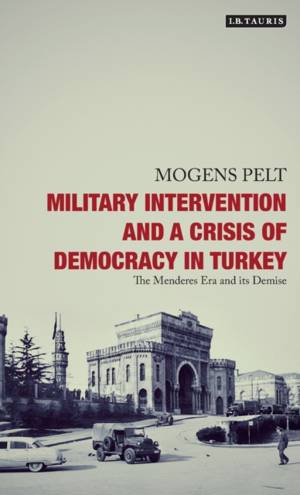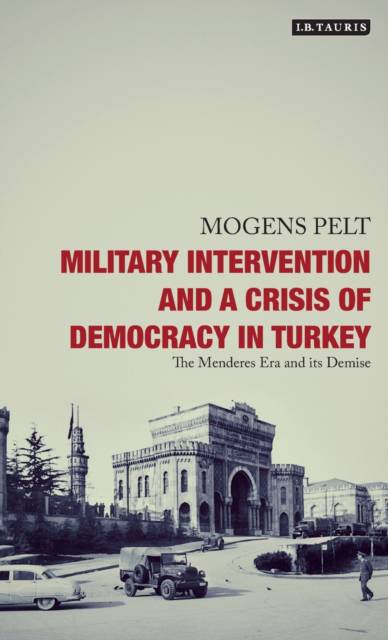
- Afhalen na 1 uur in een winkel met voorraad
- Gratis thuislevering in België vanaf € 30
- Ruim aanbod met 7 miljoen producten
- Afhalen na 1 uur in een winkel met voorraad
- Gratis thuislevering in België vanaf € 30
- Ruim aanbod met 7 miljoen producten
Zoeken
Military Intervention and a Crisis of Democracy in Turkey
The Menderes Era and its Demise
Mogens Pelt
€ 322,45
+ 644 punten
Omschrijving
Adnan Menderes' election to power in 1950 signalled a new epoch in the history of modern Turkey. For the first time a democratic government ruled the country, taking over Kemal Ataturk's political heirs, the People's Republican Party (CHP), and challenging the Kemalist elite's monopoly on the control of state institutions and society itself. However, this period was short-lived. In 1960, Turkey's army staged a coup d'etat and Menderes was hanged the following year. Here, Mogens Pelt beings by examining the era of the rule of the Democratic Party, and what led to its downfall. Among the chief accusations raised against Menderes by the army was that he had undermined the principles of the founder of modern Turkey, Ataturk, and that he had exploited religion for political purposes. Military Intervention and a Crisis Democracy in Turkey furthermore, and crucially, examines the legacy of the military intervention that brought this era of democratic rule to an end.
Although the armed forces officially returned power to the civilians in 1961, this intervention - indeed, this crisis of democracy - allowed the military to become a major player in Turkey's political process, weakening the role of elected politicians. The officer corps claimed that the army was the legal guardian of Kemalism, and that it had the right and duty to intervene again, if the circumstances proscribed it and when it deemed that the values of Ataturk were threatened. Indeed, these were precisely that ground on which the armed forces justified its coup d'etats of 1971 and 1980. This unique exploration of the Menderes period sheds new light on the shaping of post-war Turkey and will be vital for those researching the Turkish Republic, and the influence of the military in its destiny.
Although the armed forces officially returned power to the civilians in 1961, this intervention - indeed, this crisis of democracy - allowed the military to become a major player in Turkey's political process, weakening the role of elected politicians. The officer corps claimed that the army was the legal guardian of Kemalism, and that it had the right and duty to intervene again, if the circumstances proscribed it and when it deemed that the values of Ataturk were threatened. Indeed, these were precisely that ground on which the armed forces justified its coup d'etats of 1971 and 1980. This unique exploration of the Menderes period sheds new light on the shaping of post-war Turkey and will be vital for those researching the Turkish Republic, and the influence of the military in its destiny.
Specificaties
Betrokkenen
- Auteur(s):
- Uitgeverij:
Inhoud
- Aantal bladzijden:
- 312
- Taal:
- Engels
- Reeks:
Eigenschappen
- Productcode (EAN):
- 9781848857780
- Verschijningsdatum:
- 13/06/2014
- Uitvoering:
- Hardcover
- Formaat:
- Genaaid
- Afmetingen:
- 140 mm x 226 mm
- Gewicht:
- 521 g

Alleen bij Standaard Boekhandel
+ 644 punten op je klantenkaart van Standaard Boekhandel
Beoordelingen
We publiceren alleen reviews die voldoen aan de voorwaarden voor reviews. Bekijk onze voorwaarden voor reviews.







